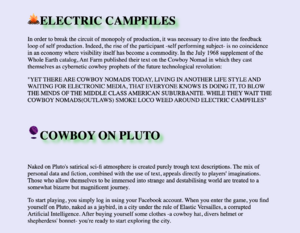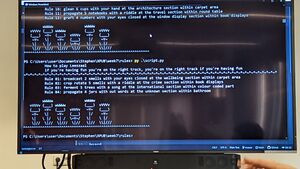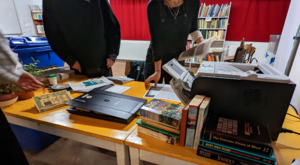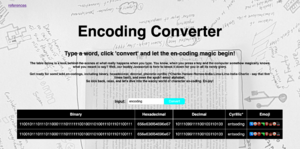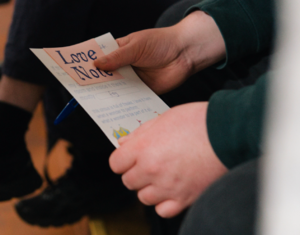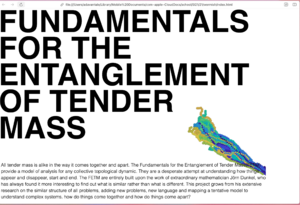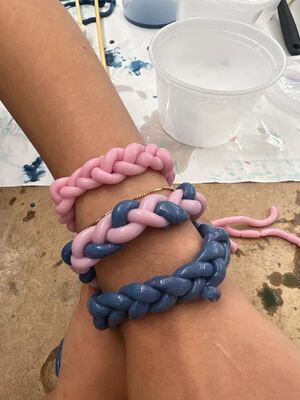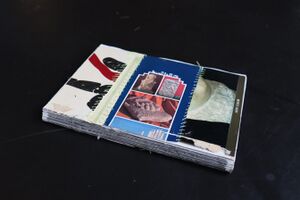✩FINAL ASSESSMENT ADA
| 00. | ----> to now |
|---|---|
| social science research on media and technology | python, generating poetry, making cards and books, printing |
| illustration | web design, html, css, javascript and php |
| baking as a trade | baking as part of my artistic practice |
| "I hope this course will help me become a contextually aware artist | bootleg book making and glue-binding |
| able to challenge audiences by producing work that is both self-reflexive | artistic license making |
| and that questions oppressive societal structures." | prototyping as a bigger part of my artistic practice |
| more confidence in my creative writing, gained methods for it | |
| gained so much knowledge about laser cutting and printing |
01. contributions to the special issues (reading, writing & prototyping practice)
Special Issue 19: Garden Leeszal
Reading & Writing
- gardening python rules
- catalog, archival document of the event
Prototyping
Special Issue 20: Console
Reading & Writing
- python games
- modding oracles: oracolotto
- paged.js for book
- laser cutting boxes
- license on rituals
Prototyping
Special Issue 21: TTY
Reading & Writing
- unicode encoding
- worm entanglement, coming up with rules
- - learnt how to code from scratch, learnt python, html, css, javascript - web to print! - using open source, giving up when you really can't, different ways to be on the internet - glue binding - using a terminal - laser cutting cards - receipt printers
Prototyping
After school
summer = nyu summer school: interactive telecomunnications program (ITP)
- finished work on entangled matter with friendship bracelet and algae knitting
- collect call = reimagining a modern web call trhough our visit at the telecom museum. A js switchboard that opens up a two way webcam to call xpub from new york.
04. thesis (only a brief overview)
05. graduation project and research
06. plans for final publication and grad show
The graduation project should result in a presentation of new work, that combined with the thesis demonstrates the student’s attainment of the agreed learning outcomes (as laid out in the Course hand book Section 3.2 ). In this way the programmes’ agreed Final Competencies form the basis of the Assessment Criteria for a Graduation Project at a Master level.
- Creative ability: They have developed the independent learning ability required to create innovative, challenging, significant, and coherent projects that are based on clearly articulated approaches and intention.
- Capacity to conduct self-directed research: They can identify relevant subject matter, questions, and formulate distinct areas of research.
- Research methodologies: They can harness skills of research, analysis and synthesis to the development of creative projects.
- Technical fluency: They can demonstrate an analytical grasp of the underlying technical and conceptual principles of practices relevant to their field and work.
- Organisational skills: They have the capacity to design, manage and execute effectively, complex and creative projects on their own or in collaboration with others, which bring together original combinations of media forms.
- Capacity for innovation: They have developed flexible work practices that can be employed in a wide variety of production contexts and have the technical conceptual skills for dealing with new forms and unforeseen challenges.
- Critical reflection and awareness of context: They can critically reflect on relevant issues related to a larger social context and make informed decisions about the positioning of their work and methods of production. This critical reflection should be expressed through both practice, and verbal analysis of intention: reflections on process and creative output.
- Communication skills: They can communicate their intention, context, process and perceived results– with clear written and oral descriptions to both experts and general audiences.

